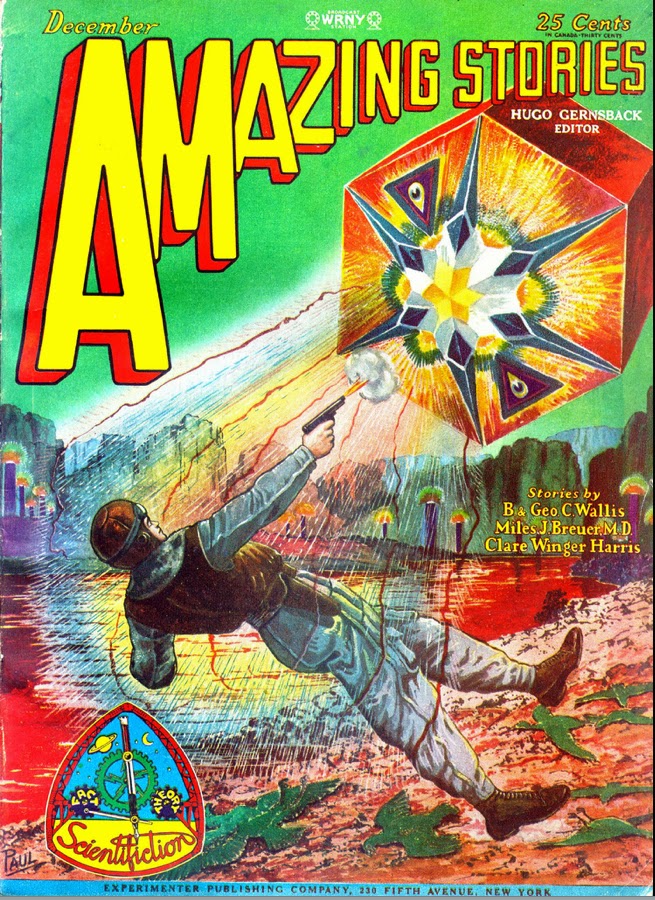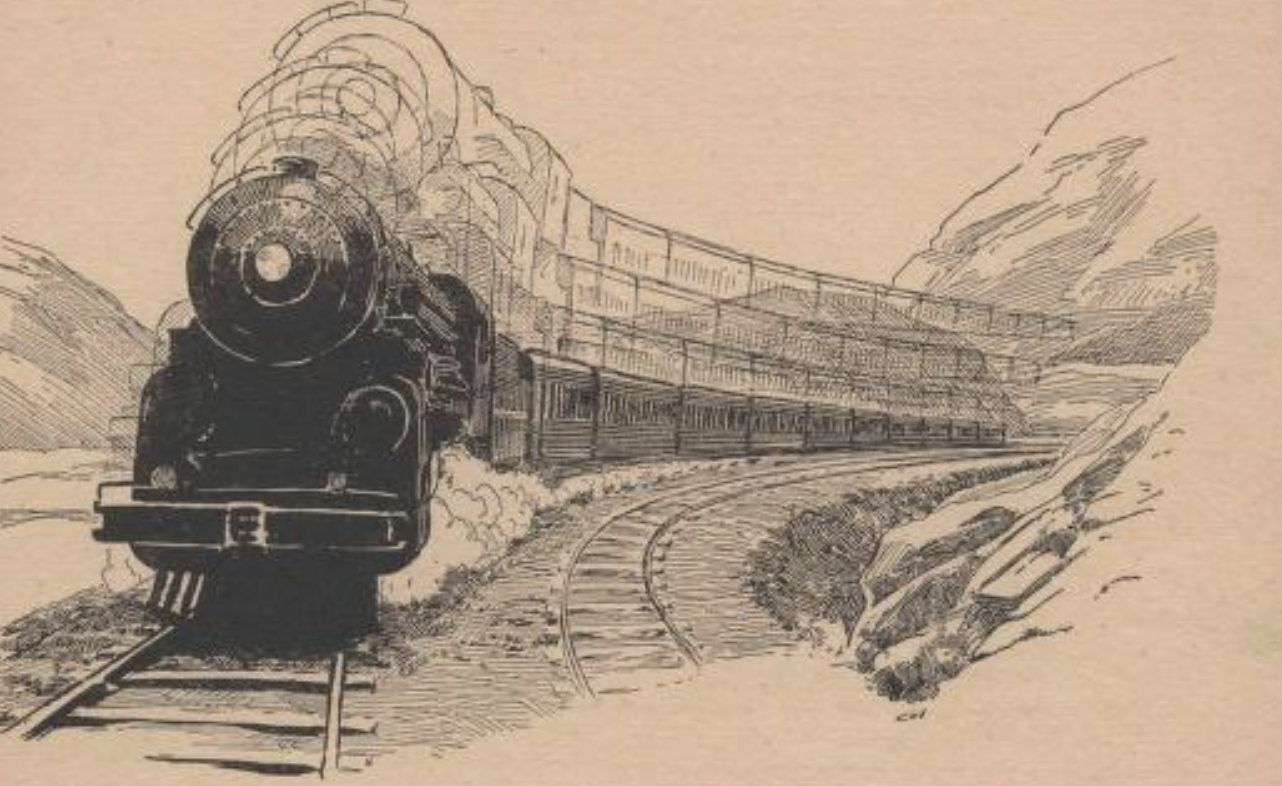THE FIFTH DIMENSION (1)
By:
May 1, 2023

HiLoBooks is pleased to serialize Clare Winger Harris’s “The Fifth Dimension” (which first appeared in Amazing Stories, December 1928) here at HILOBROW.
ALL INSTALLMENTS: 1 | 2 | 3 | 4.

“Hey, this has happened before!” I cried as I poured my husband a third cup of coffee.
John laid down the morning paper and shrieked with laughter.
“I’ll say it has, and it’s liable to happen again tomorrow morning! Did you ever know me to drink fewer than three cups of coffee at breakfast, Ellen?”
“Oh, you don’t know what I mean,” I responded, a trifle irritably, “I have reference to that feeling that we all have occasionally: that the identical set of circumstances that surround us has existed before in some remote eon of time.”
“Fiddlesticks!” ejaculated John as he set down his empty coffee cup and folded his napkin. “I’m going to get my car started, as it takes so long these cold mornings.”
In which unsympathetic mood he donned hat and overcoat and disappeared through the kitchen door. A second later his head was thrust through the reopened door, and a jovial smile spread over his features.
“Say, Ellen, it strikes me as I go out to get the old bus, that this has happened before,” he called back to me.
“Something else will strike you,” I cried, playfully picking up an empty cup.
He dodged in mock consternation, then his face grew earnest.
“But seriously, my dear girl,” he said, “I hope you aren’t getting to believe in all that rot about soul transmigration. Surely you don’t think your personality has been previously decked in other corporeal trappings, do you?”
“No,” I replied, “I do not believe that. I have always been myself, and you will always be yourself (stubborn as ever)! My explanation of the oft-repeated premonition that my life has been lived before exactly as I live it now, lies solely in the theory that time which is the fourth dimension is, like space, curved, and travels in great cycles. You cannot conceive of either the end of space or time. The law of the universe as illustrated by the movements of the stars and planets and the endless motion of the molecules and atoms and the whirling of the electrons, proves that orbital motion is a cosmic law and that all things return eventually to their starting point. And so, in the vast cycles of time and space, we repeat our existence upon this earth, and I claim that occasionally a fleeting memory of previous cycles thrusts itself into our consciousness.”
“Too deep for me,” said John with a shrug. “I must get down to the office, and by the way, an apple pie for dinner tonight would be greatly appreciated. I haven’t had any for a long time.”
“Do you like my apple pies, John?” I asked smiling.
“Do I? You are an expert at it. I suppose,” he added as he all but disappeared through the crack of the door as it stood slightly ajar, “the infinite number of times that you have baked apple pies in previous cycles of existence has made you adept in that line!”
The door closed and he was gone.
Dear John! Of course he understood the theory as well as I did, but he was forced out among associates in the business world and it was essential that his mind be continually occupied with the practical affairs of life. Dreamers might be vouchsafed glimpses of the truth, but did such visions always prove beneficial? There was no doubting that John was a greater success in life than I, whether he grasped the significance of certain cosmic truths or not!
“After all,” I mused, “the difference between the great and the small, the infinite and the finite, right and wrong, good and evil, is sometimes one of degree and not of quality. The most difficult is simple if we follow the rules. The people, who make a muddle of their lives, have deliberately, though unknowingly, chosen the harder way. They are law-breakers, not necessarily in our legal sense, but they are transgressors of Universal Law. Had they simply worked in harmony with the Law, success would have come easily.”
“I have not always worked in harmony with the Law,” I thought. “None of us have. Do I, now in this cycle of time, possess the ability to change errors performed in previous ones, or am I a mere puppet, destined to a certain definite course of action throughout eternity? Was Henley right or wrong when he wrote, “I am the master of my fate, the captain of my soul’?”
I believed in the cycle theory of time, and yet in it I saw no hope for changing the errors of the past.
My theory was a death-blow to progress and evolution!
RADIUM AGE PROTO-SF: “Radium Age” is Josh Glenn’s name for the nascent sf genre’s c. 1900–1935 era, a period which saw the discovery of radioactivity, i.e., the revelation that matter itself is constantly in movement — a fitting metaphor for the first decades of the 20th century, during which old scientific, religious, political, and social certainties were shattered. More info here.
SERIALIZED BY HILOBOOKS: James Parker’s Cocky the Fox | Annalee Newitz’s “The Great Oxygen Race” | Matthew Battles’s “Imago” | & many more original and reissued novels and stories.
